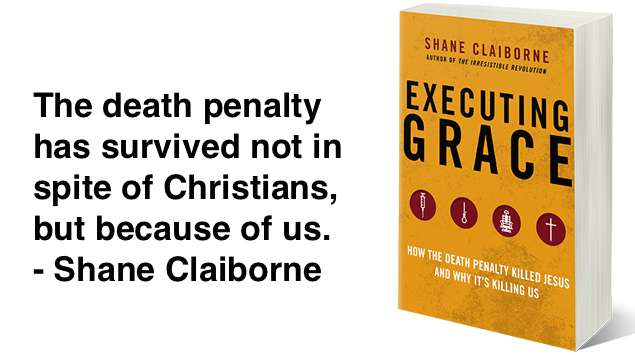
In Executing Grace: How the Death Penalty Killed Jesus and Why It’s Killing Us (HarperOne), Shane Claiborne takes a similar approach to argue for the end of capital punishment in the United States. Throughout the book, the activist and founder of the Simple Way tries to put a human face on the victims and perpetrators of the death penalty, even the executioners themselves
Early on, Claiborne engages familiar biblical texts to dispute the well-worn notion that the death penalty is God’s idea. Among his contentions: In the Bible, murderers like Cain, Moses, and David are not executed but spared. The Old Testament’s eye-for-eye standard of justice was not license for death, but a limit on retribution (Lev. 24:14–23). Further, Claiborne argues, Jesus applied a more rigorous limit on this “letter of the law” in the Sermon on the Mount (Matt. 5:38–39, 44). To Claiborne, the “sword” borne by rulers in Romans 13:4 is not the saber of a Roman executioner, but a small dagger worn on the belt. Most important, Christ’s death on behalf of fallen humanity lets mercy have the final word (James 2:13
“Ultimately, we are not talking about an issue,” he explains. “We are talking about people.”
The book cites overwhelming sociological evidence. Claiborne writes, “One of the most powerful arguments against the death penalty is the simple fact of how disproportionately it is applied to race.” A black man is more likely to be executed than a white man, a poor man than a rich man. And a black, poor man in Texas—where more than half of America’s 2015 executions took place—is more likely than anyone to be sentenced to die. Practices like judicial override (where a judge can impose a death sentence even after a jury recommends a life sentence) and sentencing criteria like “future dangerousness” add to the problem of arbitrariness.
May 20, 2016 Christianty Today article
No comments:
Post a Comment